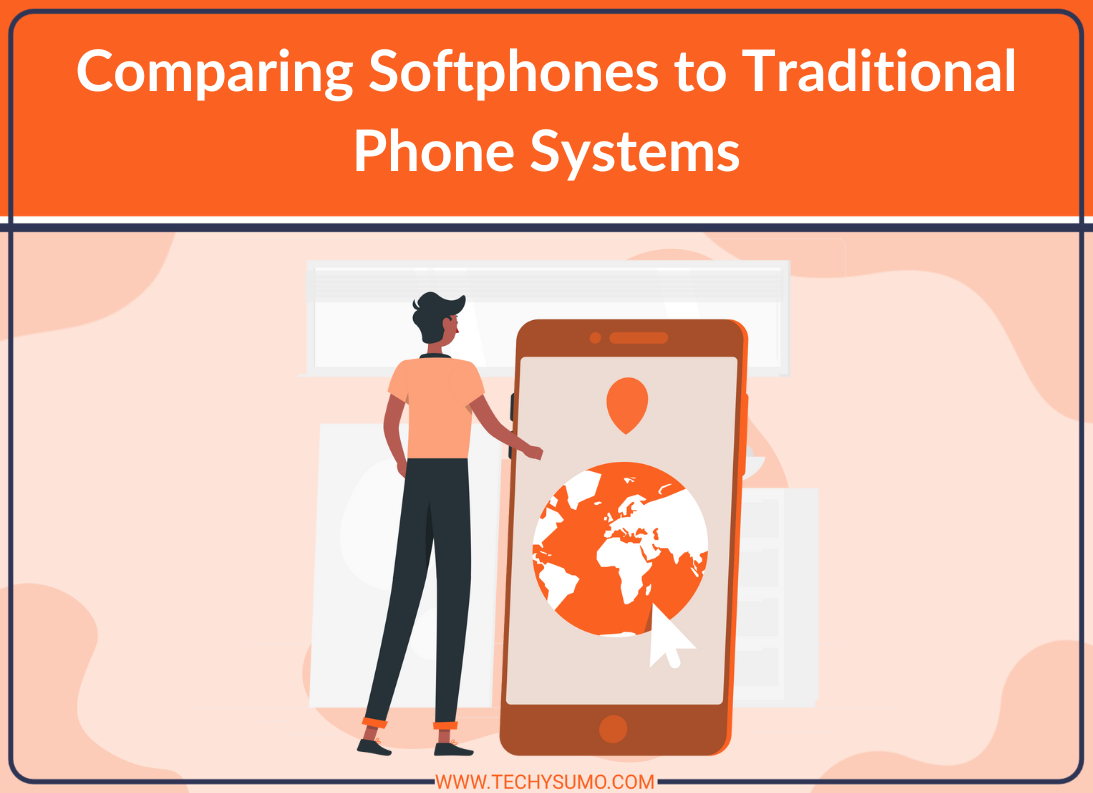When it comes to choosing a phone system for your business, the decision can often be daunting. With advancements in technology, many businesses now face the question: should we stick with a traditional phone system or make the switch to a softphone solution? Both options offer unique benefits, but understanding their differences will help you decide which is best suited for your business needs. Let’s break down the key considerations of softphones and traditional phone systems to guide you in making an informed decision.
Table of Contents
- What Are Softphones?
- What Are Traditional Phone Systems?
- Cost Considerations: Softphones vs. Traditional Phone Systems
- Flexibility and Mobility
- Features and Customization
- Reliability and Quality of Service
- Scalability and Future-Proofing
- Which One Is Right for Your Business?
- Finding the Right Choice For You
What Are Softphones?
A softphone is a software-based phone that allows you to make and receive calls over the internet. It operates on a computer, smartphone, or tablet and uses Voice over Internet Protocol (VoIP) technology to transmit calls. Essentially, a softphone replaces traditional hardware-based telephones by relying on internet connectivity to function. This flexibility can make it a compelling choice for businesses of all sizes, particularly those with remote or hybrid teams.
What Are Traditional Phone Systems?
Traditional phone systems, also known as landline or desk phones, rely on physical wiring and telecommunications infrastructure to function. These systems operate through Public Switched Telephone Networks (PSTN) and require physical hardware, such as phones, wiring, and a central PBX (Private Branch Exchange) system. While they have been the standard for many years, traditional phone systems often involve higher setup and maintenance costs.
Cost Considerations: Softphones vs. Traditional Phone Systems
One of the most significant advantages of softphones is their cost-effectiveness. Since softphones run on existing internet connections, there is no need to purchase expensive hardware, install wiring, or maintain dedicated phone lines. For businesses operating on a tight budget, this can be a major perk. Many VoIP service providers offer affordable subscription models, which can help reduce overall communication costs.
In contrast, traditional phone systems often come with significant upfront costs for the hardware and installation. Additionally, maintenance and repairs can add up over time, especially if your business expands or needs to upgrade the system. For larger organizations, the complexity of a traditional phone system can make ongoing management and scalability more expensive.
Also Read
Flexibility and Mobility
One of the standout features of softphones is their flexibility. Since softphones are software-based, they allow employees to take calls on a variety of devices, such as their laptops, desktops, or smartphones. This is particularly valuable in today’s business landscape, where remote work and flexibility are key. Softphones enable employees to stay connected whether they are in the office, at home, or traveling.
On the other hand, traditional phone systems are often tied to a fixed location. While some businesses use mobile phones in conjunction with desk phones, the mobility and versatility of softphones offer a distinct advantage in terms of flexibility. This makes softphones ideal for businesses with distributed teams or those that require frequent travel.
Features and Customization
Traditional phone systems come with a wide array of features, but the level of customization can be limited depending on the system you choose. Advanced features like call forwarding, voicemail, and conferencing are often available, but they may come at a higher cost or require third-party integrations.
Softphones, on the other hand, offer greater flexibility when it comes to features. Many VoIP providers offer customizable solutions that can integrate with your existing software and allow you to add features as needed. Softphones often come with built-in features like video conferencing, call recording, screen sharing, and integration with CRM systems—functions that are typically offered at a higher premium in traditional phone systems.
Reliability and Quality of Service
Reliability is a key consideration for any phone system, and traditional phone systems have long been regarded as highly reliable. Since they are based on a dedicated telecommunications network, there are fewer concerns regarding internet outages or connectivity issues. For industries where communication is critical, such as healthcare or emergency services, traditional systems may still hold an edge.
However, softphones have come a long way in terms of reliability and voice quality. As long as your internet connection is stable, softphones offer high-quality voice calls. Many businesses have successfully transitioned to softphones without sacrificing call quality. Moreover, with the rise of 5G and fiber-optic internet, the reliability of internet-based communication continues to improve.
Scalability and Future-Proofing
As businesses grow, their communication needs evolve. Traditional phone systems can become cumbersome to scale. Adding new lines, extensions, or offices requires significant time, resources, and investment in hardware. This can lead to downtime and disruptions in service as your business expands.
Softphones are inherently more scalable and adaptable. Adding new users or upgrading features can be done seamlessly through software. Cloud-based VoIP solutions also enable businesses to make adjustments on the fly, ensuring that your communication system grows with your business needs. With this flexibility, softphones provide a future-proof solution that can keep up with changing business dynamics.
Which One Is Right for Your Business?
The decision between softphones and traditional phone systems ultimately depends on your business needs. If your business is looking for an affordable, flexible, and scalable solution, softphones are a great option. They are especially beneficial for businesses with remote or hybrid workforces, tech-savvy teams, or a focus on minimizing costs.
For businesses that require maximum reliability, particularly in sectors where communication is vital, traditional phone systems may still be the best fit. They offer proven reliability and are often preferred in industries that require constant uptime and high-quality service.
Finding the Right Choice For You
Both softphones and traditional phone systems have their place in the business world. Softphones offer more flexibility, cost savings, and advanced features, making them ideal for modern businesses. Traditional phone systems, however, offer reliability and simplicity, which some organizations may prefer. When deciding, consider your company’s size, budget, and communication needs to determine which system will best support your growth and operational efficiency.






